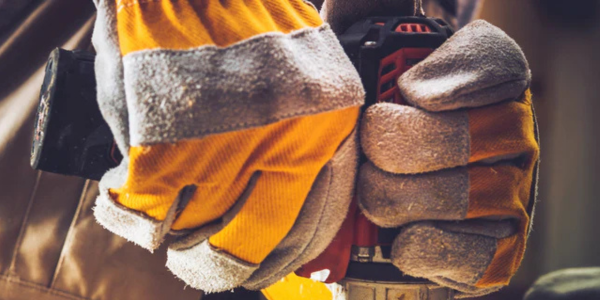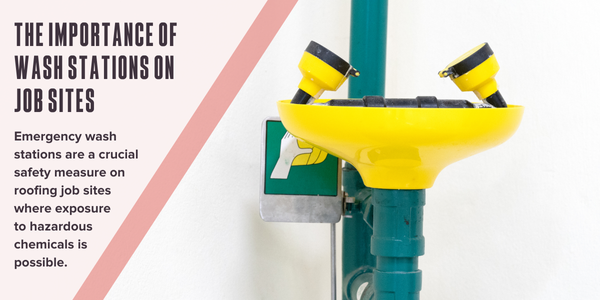Handle with care
August 11, 2025 at 3:00 p.m.By Julia Farrell, WRYKER Construction Supply.
Not all gloves are created equal, and the right choice delivers protection, performance and peace of mind.
On any jobsite, your hands are your most important tools and by far the most vulnerable. Yet too often, the choice of work gloves gets treated like an afterthought. With a maze of ratings, materials and use cases to navigate, grabbing just any pair off the shelf doesn’t cut it. Whether you’re welding steel, laying shingles or loading pallets, the right glove can mean the difference between a productive day and a trip to urgent care. Here’s what the pros at Wryker Construction Supply know and what you need to know as well, before you suit up.
How work gloves are tested
Work gloves are typically tested under ANSI/ISEA 105 in the U.S. and EN 388 in Europe. These tests measure performance in four key areas: abrasion resistance, cut resistance, tear strength and puncture resistance. Gloves are assigned a four-number rating based on their performance in these categories. The higher the number, the greater the protection level.
What do the numbers mean?
When evaluating a pair of gloves, you will often see a four- or six-digit code such as 4-5-4-3 on EN388:2003 rated gloves or 1-2-3-4-B-P on EN388:2016 rated gloves. Here’s what each represents by the EN388:2016 standard:
- Abrasion resistance (1-4) – Measures how well the glove withstands repeated rubbing and friction. Higher numbers indicate greater durability.
- Cut resistance (Coup test) (1-9) – Assesses how resistant the glove material is to slicing and sharp edges. Important for industries working with blades, glass or sheet metal.
- Tear strength (1-4) – Tests the force required to rip the glove material. This is crucial for applications where gloves are frequently stretched or pulled.
- Puncture resistance (1-4) – Evaluates how well the glove resists punctures from sharp objects like nails or wires.
- Cut resistance (ISO 13997 Test)
- Impact resistance (Pass/Fail)

Industry-specific glove considerations
Different trades require different levels of protection depending on the hazards present in the work environment. Here are our recommendations:
- Roofing & construction: Cut resistance is a major concern when handling sheet metal, sharp tools and materials. Look for gloves with high cut and abrasion ratings, such as ANSI Cut Level A4+.
- HVAC & metal fabrication: Workers dealing with ductwork and sharp edges should prioritize cut and puncture resistance to prevent injuries from jagged metal.
- General maintenance & warehousing: For handling boxes, equipment and general tasks, gloves with moderate abrasion resistance and tear strength will provide comfort and longevity.
- Landscaping & outdoor work: Puncture resistance is key to protecting from thorns, debris and sharp objects commonly encountered in outdoor environments.
- Electrical work: Look for dielectric gloves or options with enhanced grip and dexterity, rather than focusing solely on cut and puncture resistance.
Leather vs. synthetic gloves: Which is right for you?
When choosing between leather and synthetic gloves, it’s important to consider durability, flexibility and protection levels:
- Leather gloves: Known for their durability, abrasion resistance and heat protection, leather gloves are ideal for heavy-duty tasks such as welding, rigging and material handling. They provide excellent grip and last longer in rugged environments but may lack flexibility and breathability compared to synthetics.
- Synthetic gloves: Made from materials like nitrile, polyurethane or Kevlar, synthetic gloves offer superior cut resistance, flexibility and chemical protection. They are often preferred in applications requiring high dexterity, like precision work, electrical tasks and wet environments. Synthetic gloves generally provide better puncture resistance than leather but may wear out faster under extreme conditions.
Final thoughts
The right work glove can significantly reduce workplace injuries and improve productivity. When choosing gloves, assess the risks specific to your jobsite and look for tested, high-quality options that meet ANSI or EN 388 standards. At WRYKER Construction Supply, we stock a wide range of safety gloves to match your industry needs.
Stay protected. Stay productive. Choose the right gloves with WRYKER.
Original article and photo source: Wryker Construction Supply
Find OSHA-compliant products favored by workers here!
Learn more about WRYKER in their Coffee Shop directory or visit www.wryker.com.





















Comments
Leave a Reply
Have an account? Login to leave a comment!
Sign In